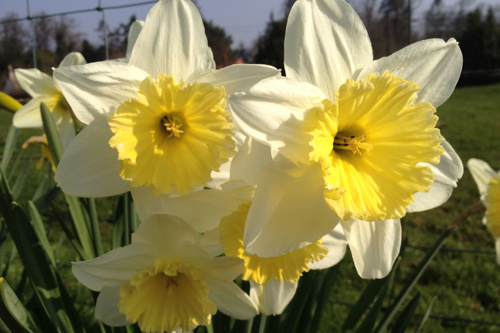WILD flowers are being planted at parks and schools so that scientists can better understand the insects that help urban green spaces to thrive.
Large flower meadows are being created to provide pollen and nectar for bees and other insects, and to supply areas in which they can flourish.
Scientists are seeking to understand how populations of bees, flies and other pollinating insects – which fertilise plants as a result of gathering their nectar and pollen – are affected by the growth of urban areas.
Flowers are being planed across Edinburgh as part of the study
Their results will help determine how best to maintain a diverse population of insect species, which in turn will help sustain plants and flowers in cities.
The development, involving University of Edinburgh scientists and City of Edinburgh Council, forms part of a three year, £1.3 million project in cities across the UK.
Meadows across Edinburgh will be sown with annual and perennial plants over the next two years.
Professor Graham Stone, of the University of Edinburgh’s School of Biological Sciences, said: “Edinburgh has a wide array of pollinating insects including bees, beetles and butterflies. Our work will help to suggest the most effective conservation methods for these insects, whose role in creating flowers we so often take for granted.”
Councillor Robert Aldridge, Environment Leader for the City of Edinburgh Council, said: “Many of Edinburgh’s parks and green spaces are home to a rich variety of wildlife. By sowing wildflower meadows across the city we can not only learn more about the behaviour of pollinating insects but also help create important natural habitats for these insects to thrive in. I’m delighted to see this project put into action as part of a wider programme to protect and enhance Edinburgh’s natural heritage.”


